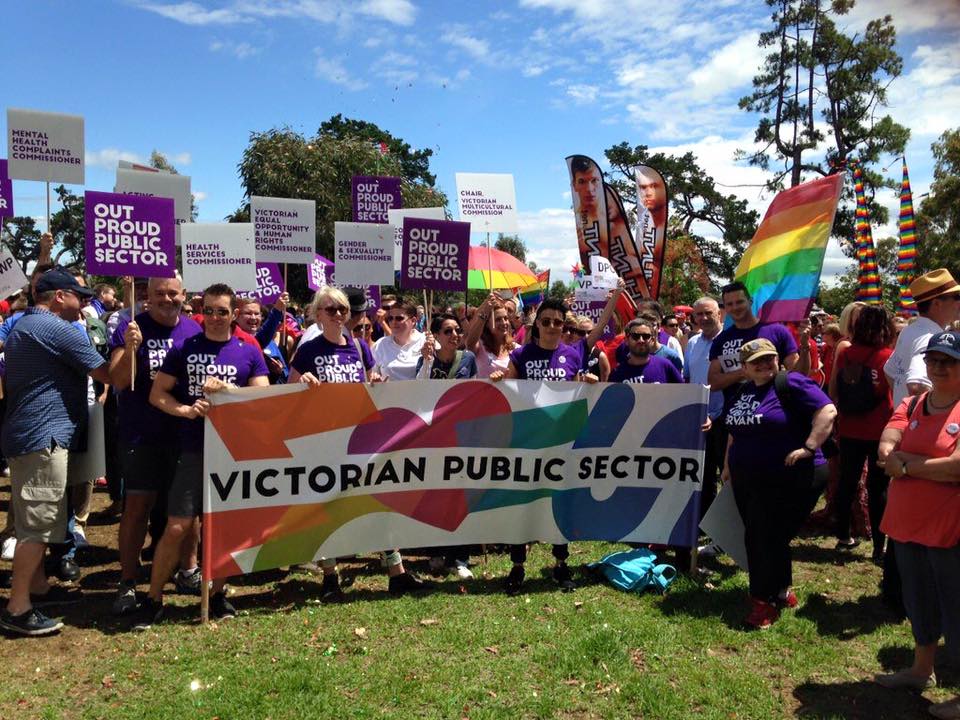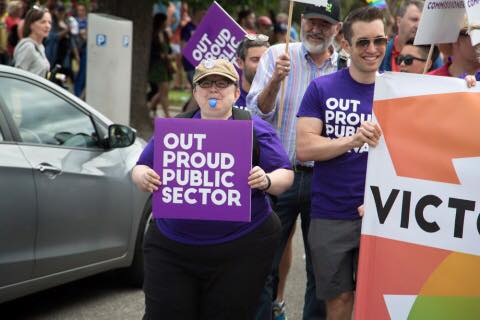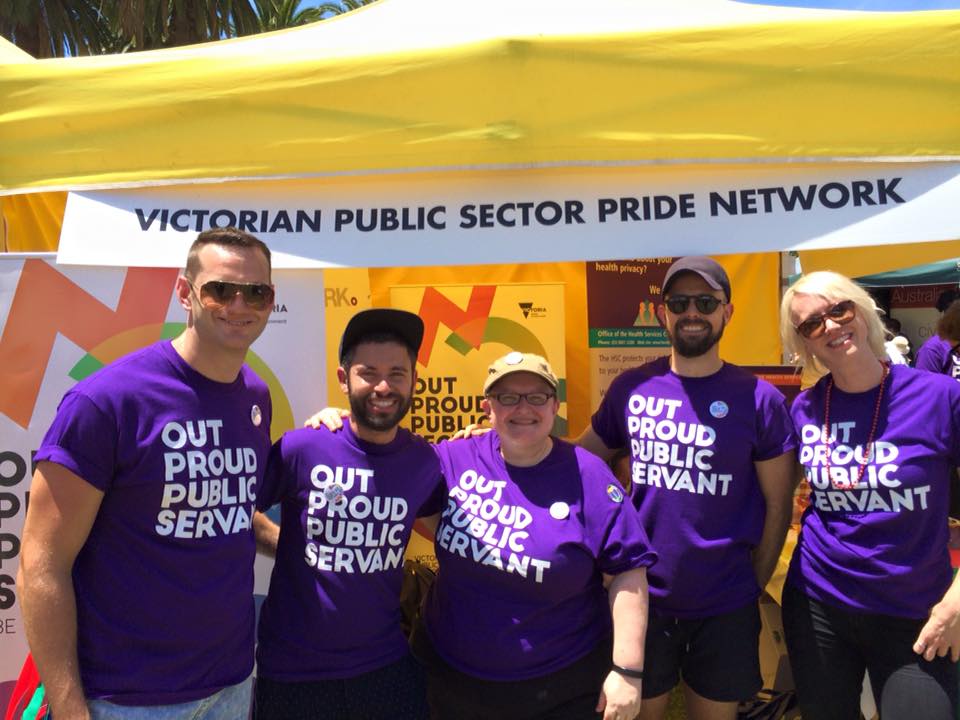How Maria Katsonis builds ANZSOG’s Bridge between academics and policy makers
17 April 2024
● News and media
As part of ANZSOG’s mission to connect the worlds of academics and public policy practitioners, it created The Bridge – a free research translation project which is about to celebrate its 100th issue. It combines a fortnightly email collating and summarising relevant research, and a series of Research Briefs that transform academic writing into a form that can be used by public servants.
Over 15,000 people subscribe – the majority of them working public servants. Since its inception The Bridge has been written by Maria Katsonis, who brings her unique ‘policy wonk’ brain, and mix of academic and practical experience to the task.
Compiling each issue of The Bridge involves Maria sifting through 50 to 60 published reports and articles to find seven or so that will stimulate the curiosity of a wide group of readers.
“In the public service we have the mantra of evidence-informed policy and the need to look at the research. That’s not as easy as it sounds because of the two issues that can be impediments – the discoverability and accessibility of research,” Maria said.
“We know the obvious – the Grattan Institute, the consulting companies – but there’s a whole lot of other great, relevant policy literature that’s produced. Whether it’s the OECD, whether it’s the Brotherhood of St. Laurence.”
“There’s also the accessibility of the academic research that you will find in journals. Some of it can be impenetrable while some journals such as the Australian Journal of Public Administration or Policy Design and Practice Are geared toward practitioners.
“How do you, as a public servant sitting at your desk – working on an options paper in relation to hospital in the home, as an example – how do you know what is available in the research cosmos?
“I think the bridge plays a role in opening up the discoverability of both academic research and supporting literature. In terms of accessibility the language of academic research is sometimes not as accessible as it should be to a practitioner, and nor is the application of the research findings.
“When I write Research Briefs, the task is to synthesise that journal article into 800 words that a practitioner can use.”

Maria’s shift from the Arts to the art of policy
Maria became a public servant almost by chance, after beginning her career in arts management, but a temporary role in the Victorian Department of Premier and Cabinet ignited a permanent passion.
“At the time, I was a partner in a boutique arts management consultancy. The plan was actually to develop my strategic thinking skills, understand how policy is made and then take that back to the business.
“I started in what is now known as Creative Victoria. What happened to me there was an epiphany. I initially saw myself as an arts manager working in the bureaucracy, but I realised that, actually, I want to be a bureaucrat and I’m just working in the arts right now.”
She spent 20 years in the Victorian Department of Premier and Cabinet (DPC) working on major government initiatives, including a government-wide innovation strategy, and the landmark A Fairer Victoria social justice strategy.
“I’ve seen every Premier from Jeff Kennett to Daniel Andrews. I also worked with an extraordinary high calibre range of peers, and I learned something from each and every secretary that I was then able to take forward.
One of her most satisfying moments was her work as the inaugural director of the first policy unit dedicated to the LGTBQI+ community, a community she herself is a part of.
“There was a great opportunity to do two things. One was about giving the community access and a voice into government, but the second was almost as important – what it did for diversity and inclusion in the public service.
“We established a DPC Pride network because I thought, if we are going to reflect the community that we serve, we need to do that as the people who we are.
“I was part of the first public service wide Pride network that marched at Pride march in St Kilda as part of the Midsumma Festival alongside the then DPC secretary, other secretaries, senior executives and about 400 public servants.
“It’s the first time I’ve ever been applauded as a public servant.”
Maria says that part of her attraction to the policy side of the public service is the genuine capacity to make a difference, but also the intellectual stimulation of policy.
“I loved it, because there was always a problem to be solved. We’re not making policy for the sake of making policy. We’re solving issues, we’re solving problems.”
Combining teaching and advocacy
Maria’s recent focus has shifted from working in the public sector to teaching public servants, both into ANZSOG programs and with the University of Melbourne.
“I fundamentally believe that we need to understand some basic tenets of public administration and public policy from a theoretical perspective,” she said.
“But for me, what’s equally as important is how do we use those academic frameworks and ideas? That’s the public value that I offer. Because I bring a practitioner’s lens, if you like, to the academic.
“I am a big proponent of case teaching based on real world cases. Because the classic case presents a dilemma with no clear solution. I might get five groups working on it, getting five different answers.
“My role is to create an environment that is conducive to learning, creating this idea of a shared environment where students learn from each other. It’s a judgment-free environment where people can raise ideas, concepts, thought bubbles, wherever it sits on the spectrum, without fearing that they are going to be criticised.”
She balances teaching with her work as a mental health advocate – something that resulted from her personal experience.
“I have been a mental health advocate for the last 16 years due to my own personal experience of mental ill health and of re-entering the community after a catastrophic episode that landed me in a psych hospital,” she said.
“The advocacy work that I’ve done to date – with organisations such as Beyond Blue, the National Mental Health Council – has been voluntary. But I’ve just taken on a substantive role as Deputy Chair of the Victorian Collaborative Centre for Mental Health and Wellbeing, which brings together people with lived experience, academics, and people who provide care, treatment and support to make systems change.”

Being a successful bureaucrat in a time of flux
Maria says the public service faces a difficult time as it adapts to deal with the ‘3Fs’ – Fractures and Faultlines in the community, and the Flux of social, demographic and technological change.
“The growing fractures and fault lines in the kind of discourse that we have about politics, polarisation and extremism on both the left and right, are leading to erosion of civility in discourse.
“We’re looking at fault lines around inequality. When we have people on salaries who still would call themselves working poor, we’ve got issues in our society. We now have people who are going to be renters for life. Who is working on these issues?”
“In terms of change, its not just technology, but the acceleration and pervasiveness of technology and its flow-throughs into how the public service operates.
She says public servants need to focus on three things: long-term thinking, political astuteness and a placing more emphasis on innovation.
“Elected governments are here for three or four year cycles. I’ve always seen the public service as the custodian of the 10-year or longer kind of horizon and needing to be able to think outwardly that far while maintaining the short term.
“Political astuteness is necessary because of that increase in complexity of the political climate. It’s not being partisan or trying to guess how elections will turn out, it’s looking upwards and outwards and saying, what is happening in the wider environment that I need to be aware of?
“There has to be capability building and an understanding of what public sector innovation is and what the drivers are. There have to be rewards and incentives for people to be able to innovate, and it has to come from the top as well
“There are really successful examples. You only have to look at Singapore, for example, which has an innovation lab within its government, or at local government level in the US.”
Maria say, that despite leaving the arts behind as a career the lessons she learnt from managing productions big and small have stayed with her.
“Number one is ‘the show must go on’, no matter what happens on opening night. I’ve always been one to say ‘No, we don’t need an extension. How do we get this done?’. It’s given me a very strong delivery mindset.
“Because there are so many unknowns in the arts it gives you flexibility and agility. It’s given me a big appetite to take risks. It’s given me an appetite to push the boundaries where I can with that delivery mindset sitting underneath it.
“And finally, it’s been excellent training for working with a diversity of ministers because I’ve never worked with any minister that’s been as temperamental as a theatre director!”
If The Bridge sounds like something you would be interested in but you’re not currently a subscriber – you can fix that by going to The Bridge webpage and signing up. It’s totally free and you can unsubscribe whenever you want.
To celebrate The Bridge’s 100th issue, ANZSOG is holding a free online webinar, hosted by Maria. Join us at 1pm on Tuesday 28 May for ‘Academics are from Venus, public managers are from Mars’ a stellar event exploring the relationship between policy and research. Chaired by Maria, an expert panel will dissect the cosmic dynamics between theory and practice. Are there two distinct worlds with ideological chasms? How can we bridge the gap so research meets the real-world demands of policymaking?
Speakers include
- Professor Janine O’Flynn, head of the Crawford School of Government at ANU,
- Eleanor Williams, Managing Director of the Australian Centre for Evaluation,
- Simon Corden, Commissioner at the Victorian Essential Services Commission, and former president of the ANZSOG-auspiced National Regulators Community of Practice
This event is free but if you want to attend you will need to register for the event through this link.
